Writeup: Quote of the Day
QotD ended up being worth 490 points in the Reverse Engineering category in HackPack CTF 2020.

From here, you get a binary to investigate as the client. When you run it, you get 2 options to play around with: e (to echo something back) and q (to get a quote).
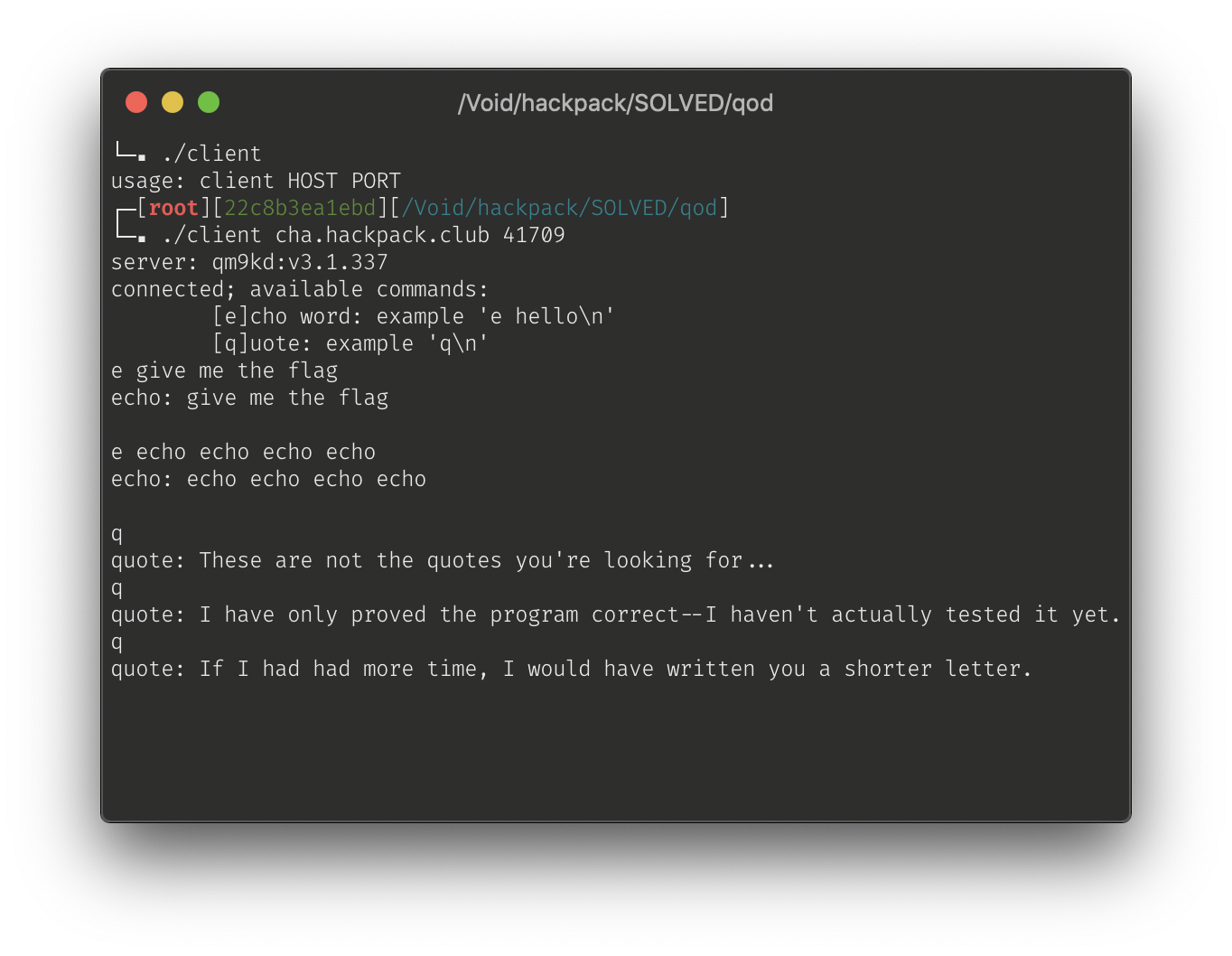
Reverse Engineering#
The challenge hints about a backdoor in the client, let’s throw the client binary into a disassembler of our choice and take a look!
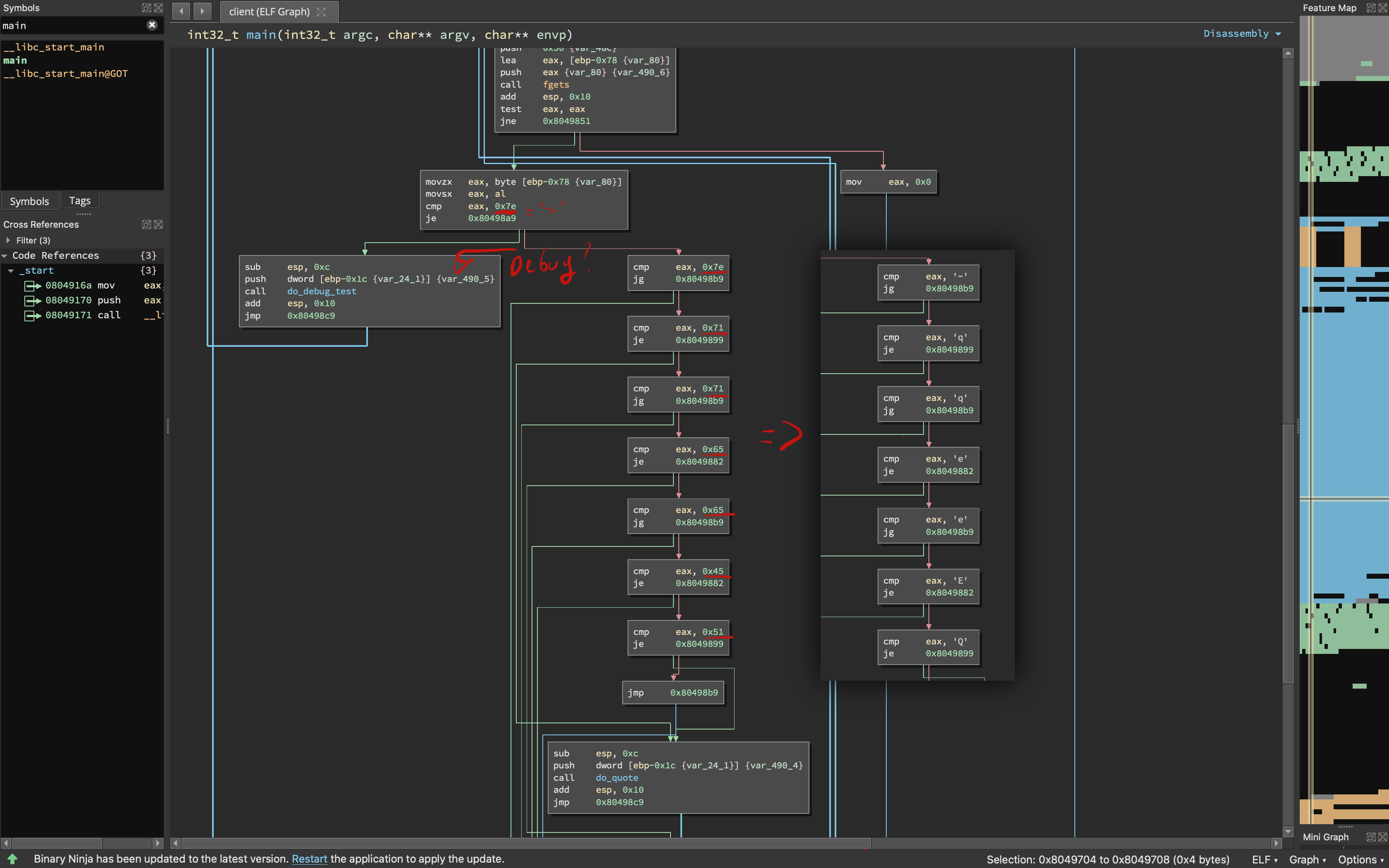
Immediately, you can see a few compare statements. Most of them check if the character is outside of the range of allowed characters. For example, the 3rd compare checks if the character entered is a ‘q.’ If it’s not, anything above a ‘q’ in the ASCII table is invalid input, and thus if it is greater than a q, the client prints out an error message.
The very first branch is what we are interested in, the input character is compared to a ‘~’ and if that is the case, it calls do_debug_test.
Let’s see what happens when we use the client binary and give it a ‘~’.
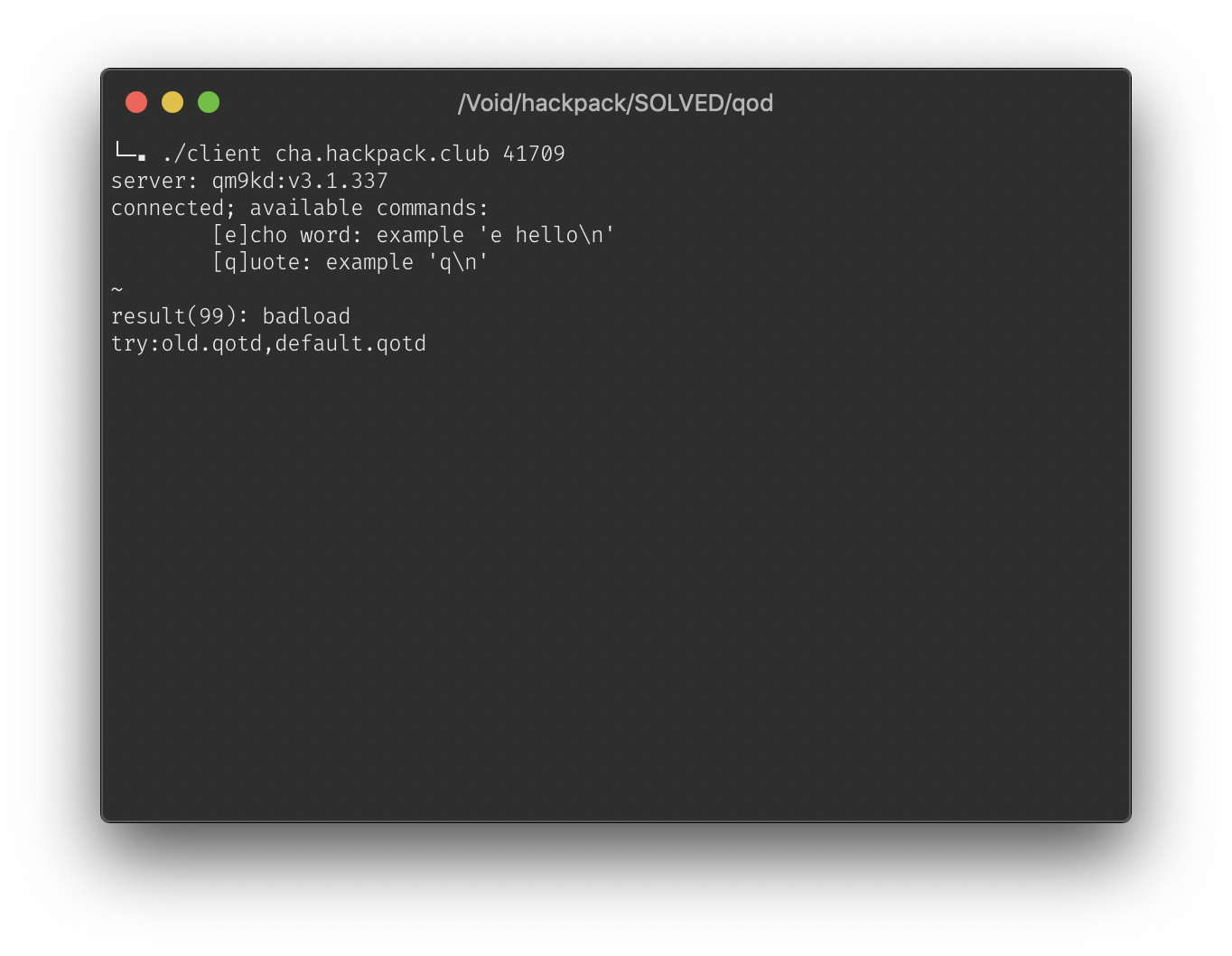
result(99): badload
try:old.qotd,default.qotd
At this point, I was too lazy to RE the rest of the client, I just finished RustyVault, Time Window, and Pirate flag, and wanted an easy way out. So I threw the binary into an Ubuntu VM and captured the packets sent using Wireshark, hoping it would shed some light on how the client works.
Here is the capture that I got!
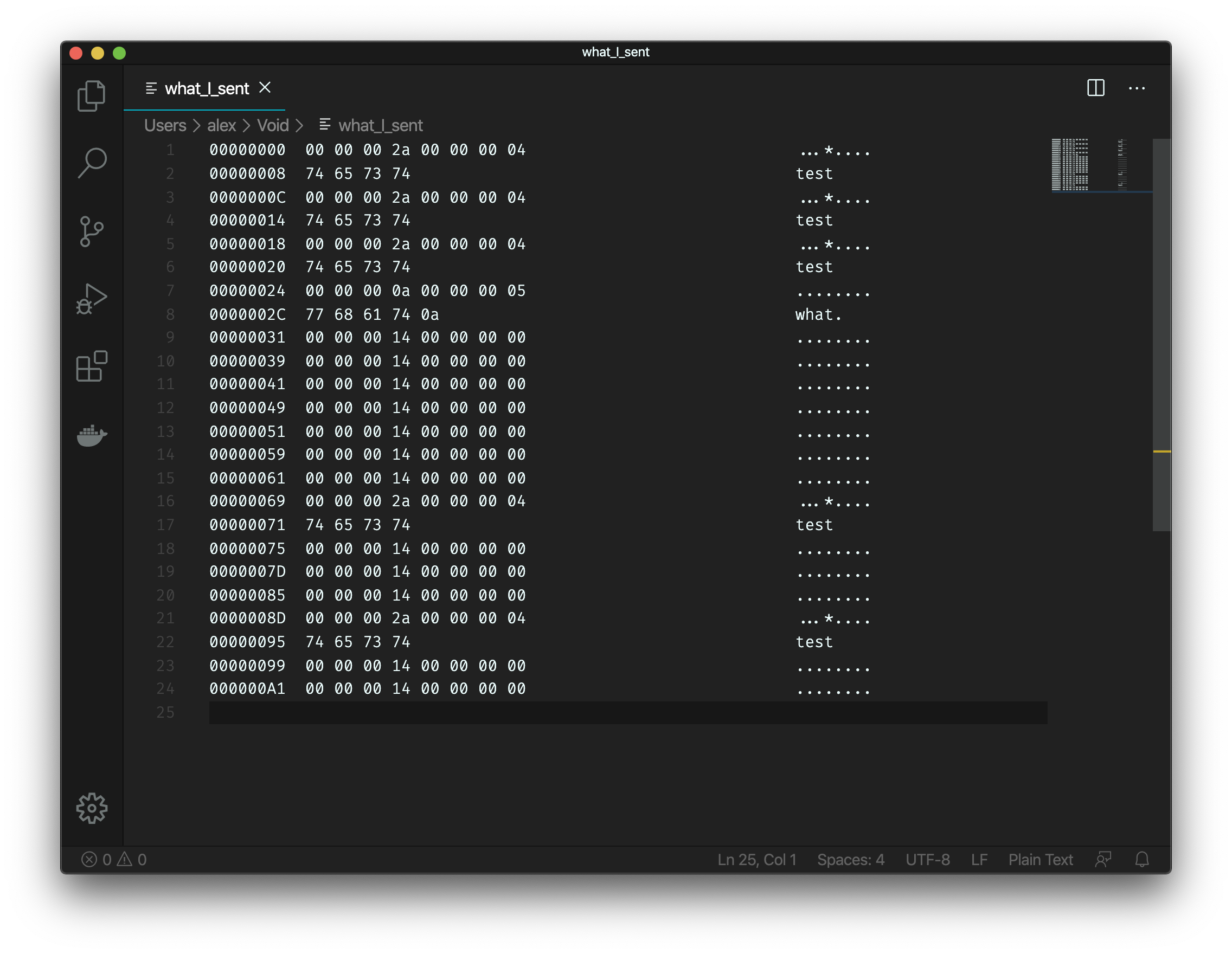
Bingo! If you look at just the client->server conversation, it is clear how the protocol works.
Here is my annotated version of the screenshot.
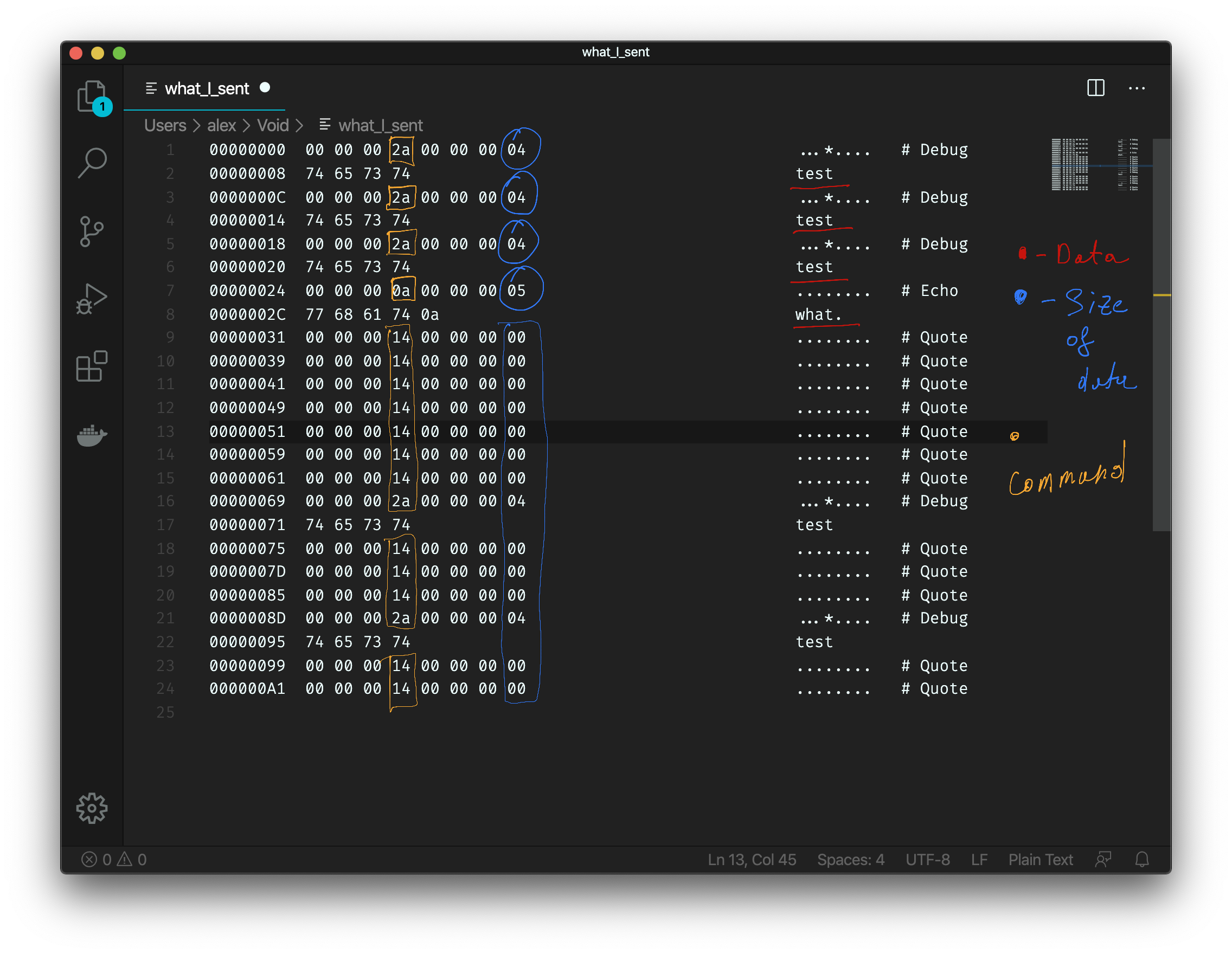
There are 8-byte commands, followed by any data that is necessary by that command. The last 4 bytes of the command seems to be the length of data you’re going to provide, and since I ran echo, debug, and quote, we can see what the first 4 bytes of each command are going to be!
So, let’s get coding! Maybe you need to send old or old.qotd as the data for DEBUG, and we get the flag!
First, let’s hard code those constants we got from the packet capture!
DEBUG = b'\x00\x00\x00\x2a\x00\x00'
QUOTE = b'\x00\x00\x00\x14\x00\x00\x00\x00'
ECHO = b'\x00\x00\x00\x0a\x00\x00'
Now let’s write functions to send an echo, debug, and quote commands! We need to append the length to echo and debug, here I left 2 bytes off for those.
def get_echo(soc, bytes):
txt = get_echo_command(bytes)
de(txt)
soc.send(txt)
return soc.recv(1024)
def get_quote(soc):
de(QUOTE)
soc.send(QUOTE)
return soc.recv(1024)
def get_debug(soc, text=b'test'):
txt = DEBUG + len(text).to_bytes(2, 'big') + text
de(txt)
soc.send(txt)
return soc.recv(1024)
Note the function de. This is just a helper function that prints out the bytes with a prefix (You can see the full code in the code directory or at the end of this markdown).
Now let’s test this! Let’s send a debug command with old in the data portion.
print(get_debug(s, b'old'))
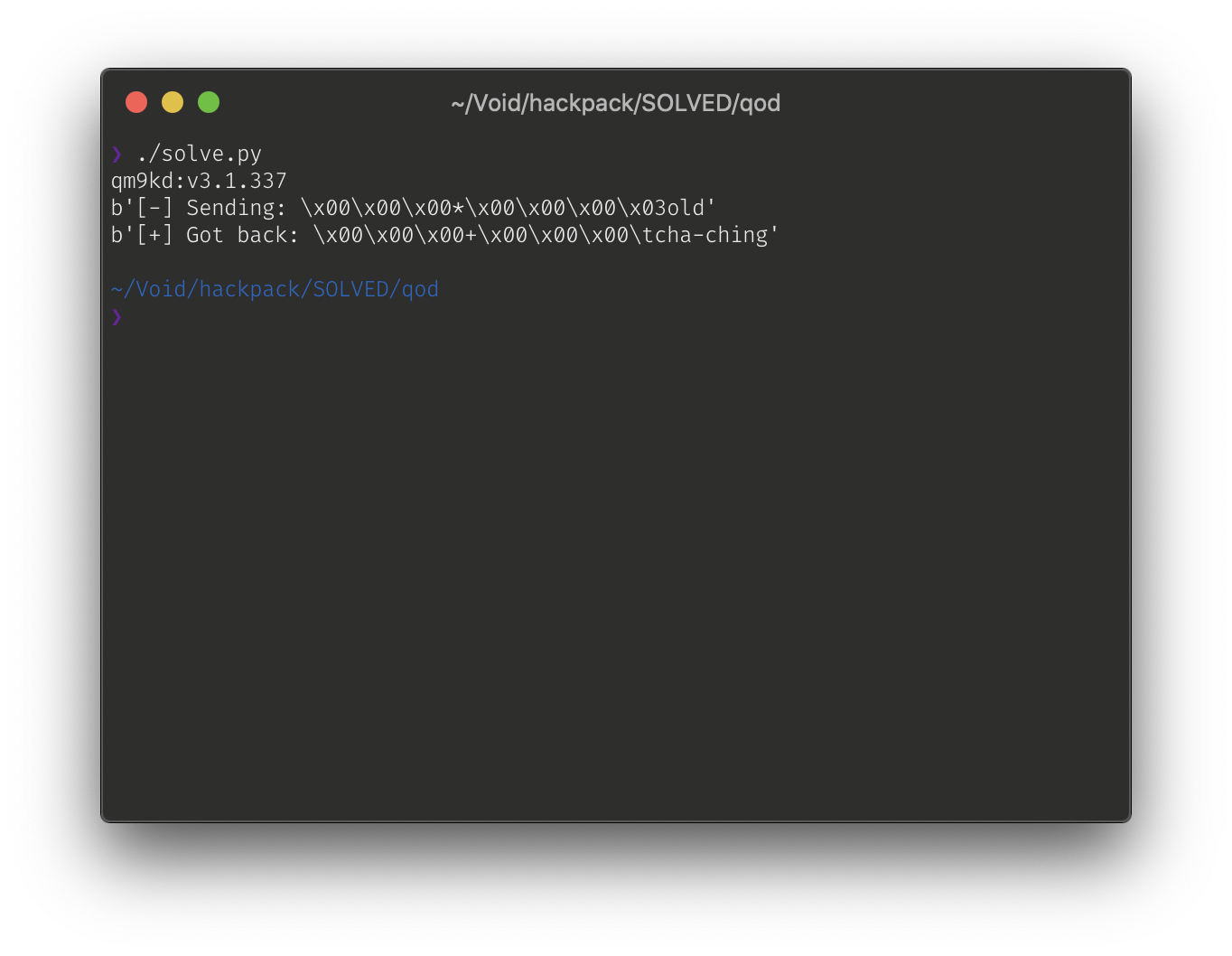
Ignoring the bytes at the beginning, all we get is cha-ching. Now during the competition, I felt like I hit another dead end. However, the challenge did mention something about the software being new, so I decided to spam out some quotes to see if I get lucky.
The whole code looked something like this.
#!/usr/bin/env python3
import socket
target = ("cha.hackpack.club", 41709)
s = socket.socket(socket.AF_INET, socket.SOCK_STREAM)
s.connect(target)
DEBUG = b'\x00\x00\x00\x2a\x00\x00'
QUOTE = b'\x00\x00\x00\x14\x00\x00\x00\x00'
ECHO = b'\x00\x00\x00\x0a\x00\x00'
def display(s):
print(b"[+] Got back: " + s)
def de(s):
print(b"[-] Sending: " + s)
def get_echo_command(s):
return ECHO + len(s).to_bytes(2, 'big') + s
def get_echo(soc, bytes):
txt = get_echo_command(bytes)
de(txt)
soc.send(txt)
return soc.recv(1024)
def get_quote(soc):
de(QUOTE)
soc.send(QUOTE)
return soc.recv(1024)
def get_debug(soc, text=b'test'):
txt = DEBUG + len(text).to_bytes(2, 'big') + text
de(txt)
soc.send(txt)
return soc.recv(1024)
print(s.recv(1024).decode('utf-8'))
display(get_debug(s, b'old'))
display(get_quote(s))
display(get_quote(s))
display(get_quote(s))
display(get_quote(s))
display(get_quote(s))
display(get_quote(s))
display(get_quote(s))
display(get_quote(s))
display(get_quote(s))
display(get_quote(s))
display(get_quote(s))
display(get_quote(s))
display(get_quote(s))
display(get_quote(s))
display(get_quote(s))
display(get_quote(s))
display(get_quote(s))
display(get_quote(s))
display(get_quote(s))
display(get_quote(s))
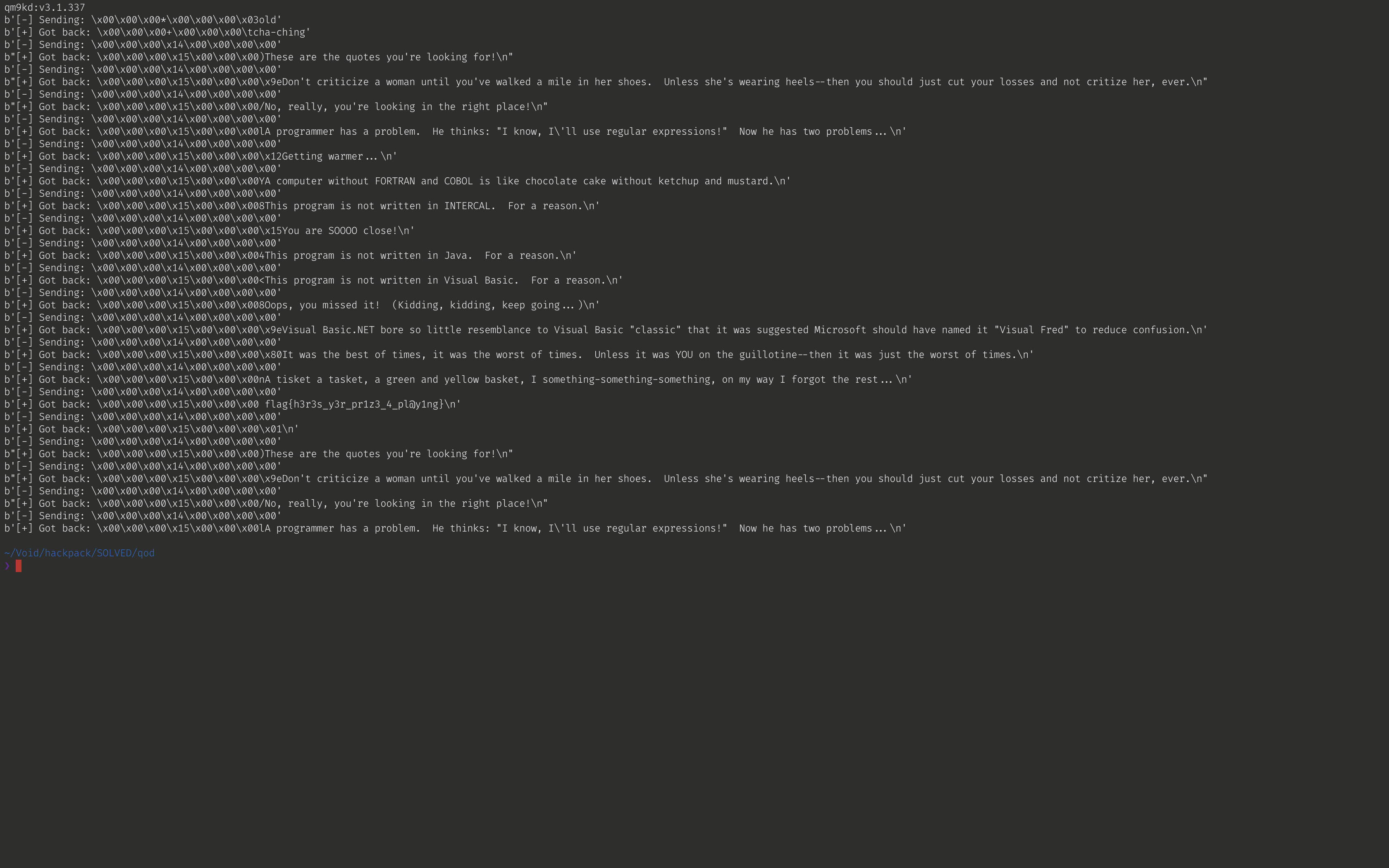
Yes! We got the flag!
Conclusion#
Overall, I feel like looking at the disassembly of just patching the binary would have been a faster way to solve this. But I went down a few dead ends when solving this challenge and having a python script that mimicked the client made sure that I had something I could re-purpose at the end of each attempt.